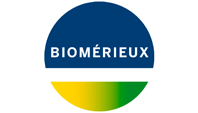bioMérieux is pursuing its initiatives to reduce greenhouse gas emissions relating in particular to energy consumption, as well as product transportation and employee travel.
Greenhouse gas assessment
A greenhouse gas assessment at bioMérieux's French sites is being carried out. This review will lead to an action plan to reduce emissions.
Reduction of greenhouse gas emissions relating to energy consumption
- In 2011, bioMérieux signed a contract for a "green" electricity supply for its Marcy L’Étoile and Craponne sites in France, which are two of the group's top three sites in terms of high electricity consumption. This contract, associated with the RECS* certificate system, ensures that the two sites each receive half their electricity from renewable source.
- These measures are supplemented by the generation of renewable energy on certain sites:
- Use of solar thermal energy to produce hot water for the cafeteria at the Craponne site (France),
- Electricity production using solar panels in Durham, North Carolina (USA), where the electricity generated is fed back into the local electricity grid.
*RECS : Renewable Energy Certificate System
Reduction of emissions relating to product transportation
- In 2011, bioMérieux increased the height of pallets used to load trucks delivering Petri plates to the manufacturing site at Tres Cantos (Spain) and for the transportation of finished products from this site to the international logistics center at Saint-Vulbas (France).
- This improvement enables the saving of approximately 62,500 km of road freight and 41 tonnes of CO2 every year.
Employee travel
A number of awareness-raising initiatives are conducted internally in order to bring about changes in behavior.
- Telecommuting pilot trial
- During 2012, a home working trial has been carried out over a 6 month-period within the Global Customer Service department. The conclusions drawn from this trial have served as a basis for the wider implementation of telecommuting.
- Promotion of car pooling
- Marcy l’Etoile (France)
- 40 parking spaces are reserved for car poolers.
- Creation of a car pooling community for the bioMérieux site and neighboring Sanofi Pasteur site within a car pooling scheme implemented by the greater Lyon authorities.
- Awareness-raising sessions are held to present environmentally friendly modes of transport and the car pooling scheme.
- Durham, North Carolina (USA), Grenoble (France)
- Car pooling is encouraged, with a system to put potential car poolers in touch with each other.
- Grenoble: two vehicles are available on site for car poolers to use for travel between bioMérieux sites.
- Marcy l’Etoile (France)
- Group car policy
- The Group's car policy states that CO2 emissions must not be greater than 140 g/km (or equivalent local standard).
- The application of the Group's car policy is reviewed during internal audits carried out by the global Internal Control department at the Group's subsidiaries.
- Teleconferences
- Seven of the Group's sites are now equipped with telepresence facilities, enabling meetings to be carried out remotely in excellent conditions and limiting the need for employee travel. These sites are Marcy L’Etoile and La Balme in France, Shanghai in China, Florence in Italy, and Durham, Saint Louis and Cambridge in the USA.
- Other tools used for teleconferences include WebEx and WebEx Connect.
Refrigerant gases
Action plans are in place at bioMérieux's sites to manage refrigerant gases and the associated greenhouse gas emissions.

